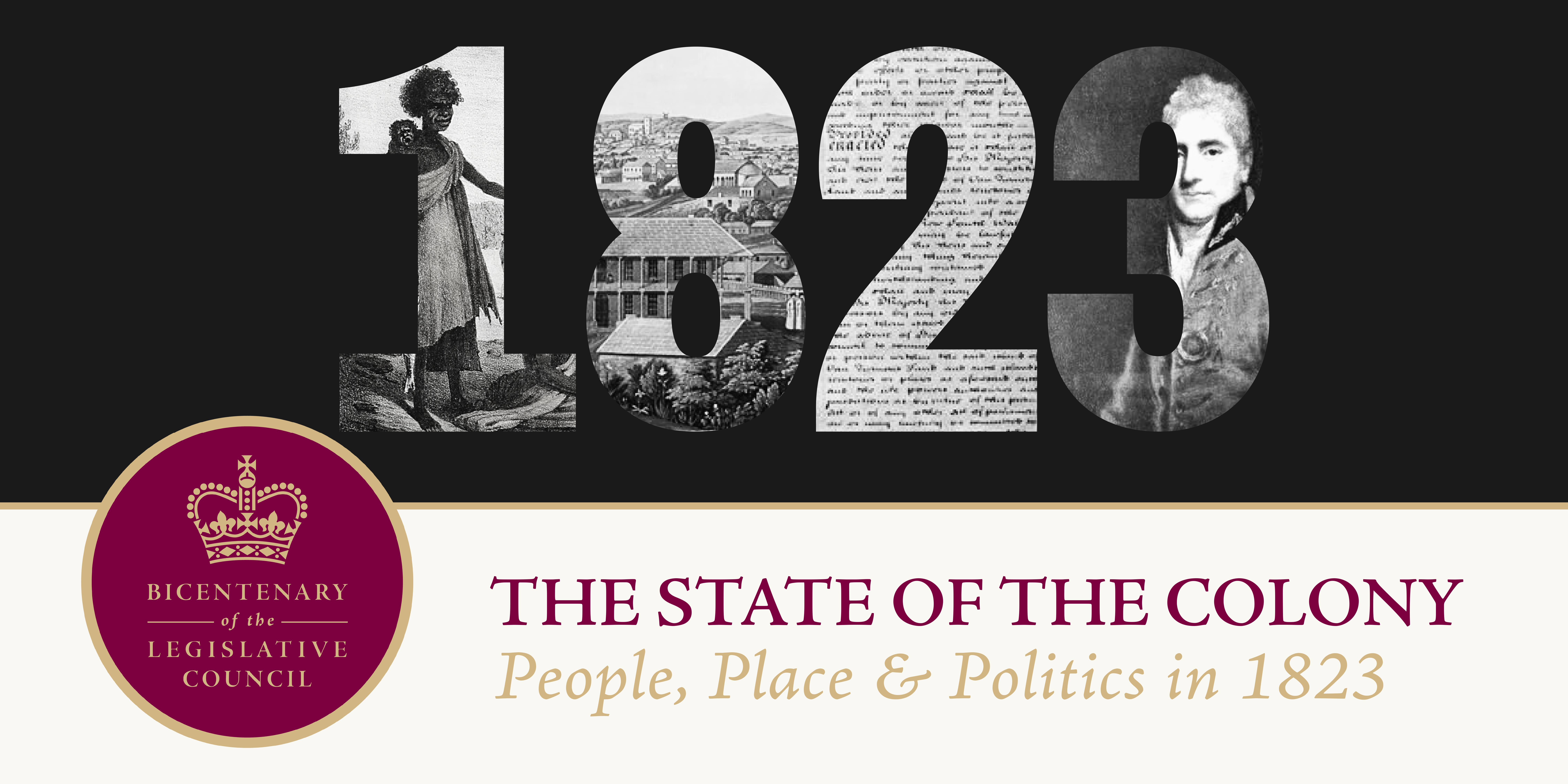
|
EVENT DETAILS
|
This two-day conference was an eye-opening journey back in time to 1823, exploring key figures, surprising stories and critical events in the early history of NSW and the development of the NSW Legislative Council.
|
The conference days were held on 8 September and 24 November 2022, with recordings and related information available below.
|
|
The first day of
The State of the Colony conference was held on Thursday 8 September 2022, as part of History Week 2022. Recordings and transcripts from most sessions can be found below.
Download the original conference program here.
About this session
Our first session was a special Reading of Country delivered by Dr Danièle Hromek. The Reading was a 'visual verbal essay' providing a preliminary understanding of Country, and the relationships and responses Aboriginal communities have to Country as those who originated from and remain part of it. The Reading of Country considered the larger cultural landscape while also reflecting the specifics of the site that the session was delivered from (did you know, for example, that the land on which the NSW Parliament sits borders a ceremonial meeting place?). The Reading of Country included deeper time narratives along with more recent understandings from contemporary community members.
While a recording and full transcript of this session is unfortunately not available, please check back soon for a session summary.
|
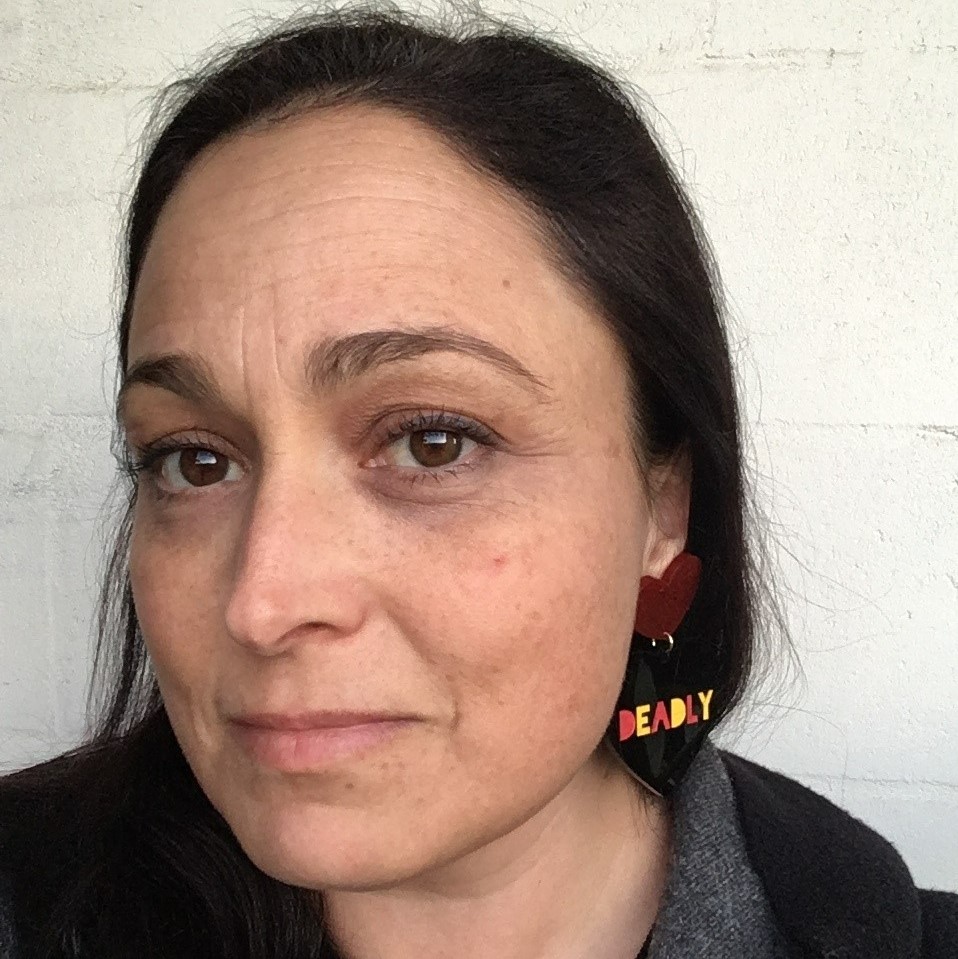
| About Danièle Hromek
Dr Danièle Hromek is a Saltwater woman of the Budawang tribe of the Yuin nation, with French and Czech heritage. Danièle is a spatial designer and Country-centred designer. She holds a Doctor of Philosophy (Design) in spatial disciplines and Bachelor of Design (Interior Spatial Design, Performance major), and is the first Indigenous person in Australia to achieve a PhD in spatial disciplines. Her research and experience contributed to the Connecting with Country framework and Designing with Country discussion piece by the Government Architect NSW.
Danièle is Director of Djinjama, which offers cultural design and research for projects in the built environment. Her work as a researcher, educator and cultural advisor brings Country, culture and community to the built environment by creating spaces to substantially affect Indigenous rights and culture. Danièle is also working with the University of Sydney as a Professor of Practice to bring Indigenous knowledges and values gained through her experience working in the profession to the curriculum.
|
About this session
Aboriginal people from coastal Sydney were astute politicians before Europeans arrived, and quickly worked out who held the power in the early colony. They developed relationships with the early governors and with politicians once the Parliament was formed, which had a great influence on their lives throughout the 19th century. By the early 20th century though, parliamentarians had little contact with Aboriginal people and had passed laws to segregate them and split up their families, the legacy of which is still being felt today. In this 'Hidden in Plain View' session,
Dr Paul Irish and Ray Ingrey explored these themes.
Watch session, including audience Q&A:
Read:
Find the full transcript of 'Hidden in Plain View' from page 9 of the Hansard record here.
|
| About Dr Paul Irish
Dr Paul Irish is a historian and archaeologist, and Director of Sydney firm Coast History & Heritage. For 15 years he has been piecing together the Aboriginal history of coastal Sydney with researchers from the La Perouse Aboriginal community, including through the 2015 NSW History Fellowship exhibition This Is Where They Travelled: Historical Aboriginal Lives in Sydney and his book Hidden in Plain View: The Aboriginal people of Coastal Sydney (NewSouth, 2017), which won the NSW Premier's History Award for Regional and Community History.
|
About this session
While the 1819 to 1823 'Commission of Inquiry into the State of the Colony of New South Wales' led by John Thomas Bigge is widely regarded as a transformative moment in Australia’s history, it was in fact designed to control change rather than unleash it. This session examined that paradox – exploring the context, mechanics and legacies of the 'Bigge Inquiry'. It involved presentations and a Q&A panel with leading academics including Prof Kirsten McKenzie, A/Prof David Roberts, Prof Lisa Ford and Dr Matthew Allen.
Watch session, including audience Q&A:
Read:
Find the full transcript of 'Hidden in Plain View' from page 18 of the Hansard record here.
|
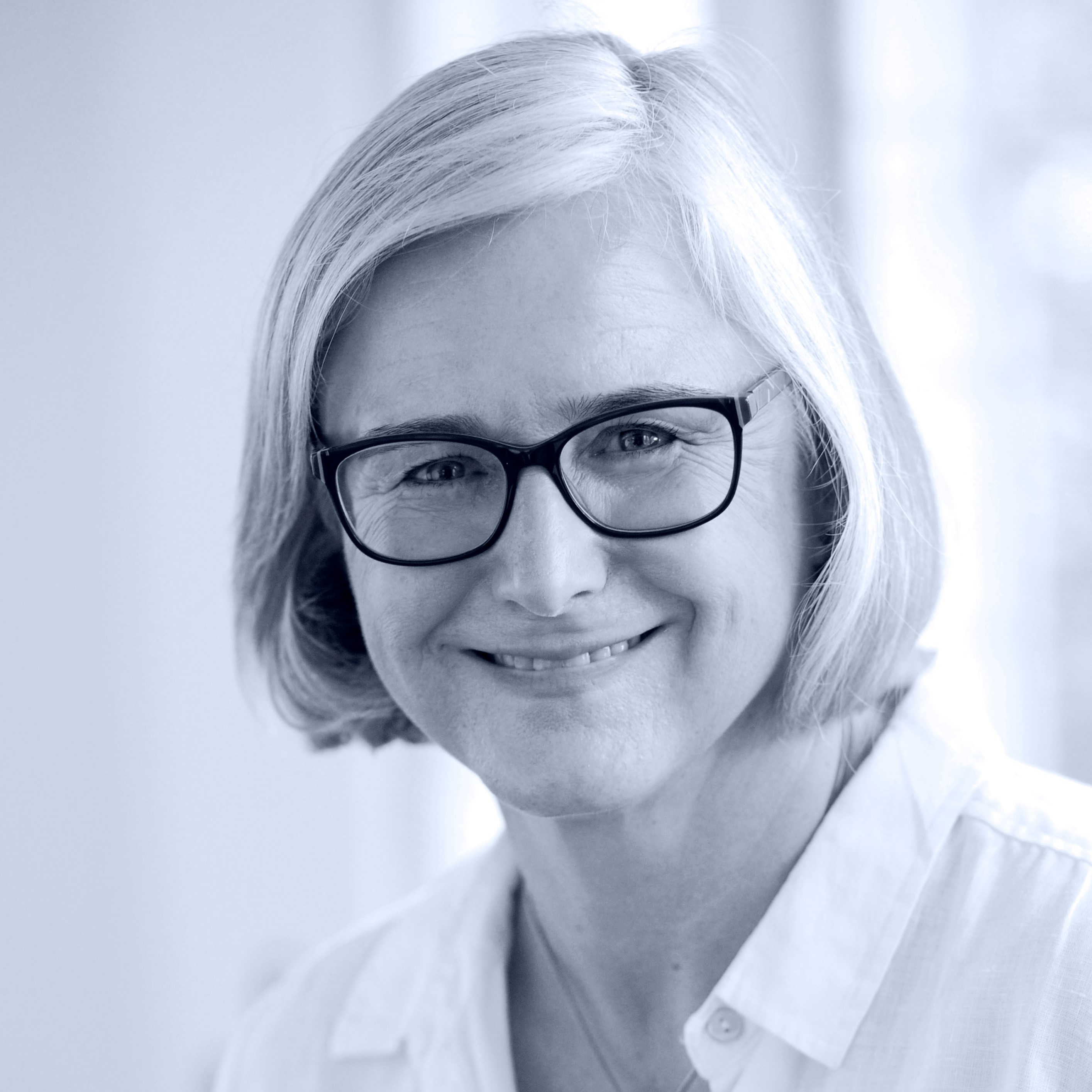
| About Professor Kirsten McKenzie
Kirsten McKenzie is Professor of History at The University of Sydney. Her sole-authored books include Scandal in the Colonies: Sydney and Cape Town, 1820 – 1850 (Melbourne University Publishing, 2004), A Swindler’s Progress: Nobles and Convicts in the Age of Liberty (UNSW Press and Harvard, 2009 and 2010) and Imperial Underworld: An Escaped Convict and the Transformation of the British Colonial Order (Cambridge, 2016). She is a Fellow of the Australian Academy of the Humanities and of the Royal Historical Society. Her current work on imperial commissions of inquiry is funded by the collaborative Australian Research Council project ‘Inquiring into Empire: Remaking the British world after 1815’, led by Professor Lisa Ford.
|
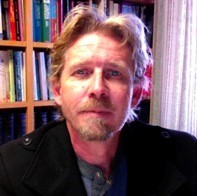
| About Associate Professor David Roberts
David Andrew Roberts is an Associate Professor of History at the University of New England, where he researches Australia's early history and edits the Journal of Australian Colonial History. He is best known for his work on the history and legacy of Australia's convict past. His research is also currently funded by an Australian Research Council grant for the project 'Inquiring into Empire: Remaking the British world after 1815'.
|
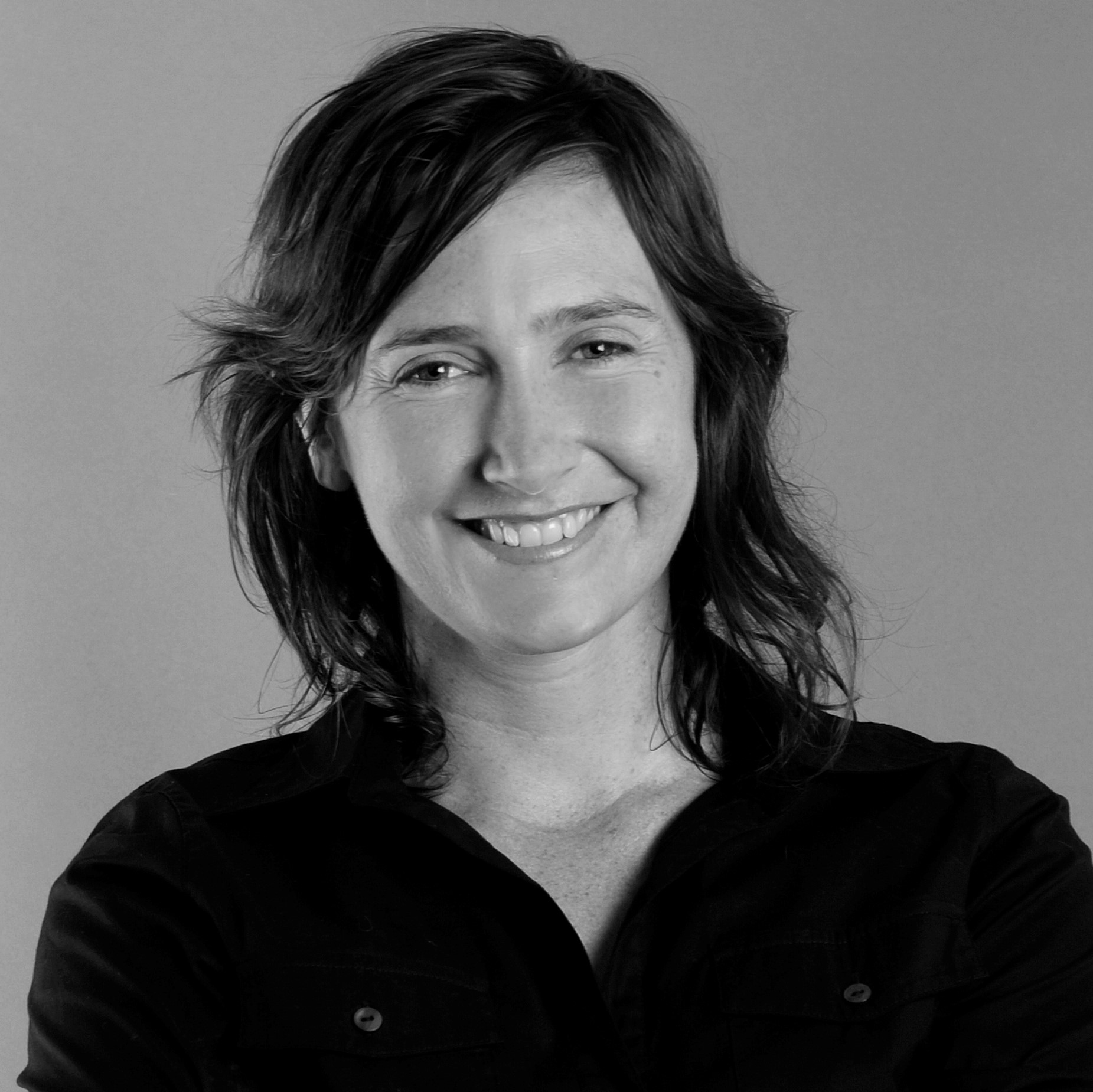
| About Professor Lisa Ford
Professor Lisa Ford is a legal historian whose prize-winning work explores ideas and practice of order in the British Empire and the Early National United States from 1763 to 1850. Her work is notable for recovering the role of quotidian colonial contests in shaping national, imperial and international law. Lisa has published three monographs: The King's Peace (Harvard, 2021), Rage for Order (Harvard, 2016), co-authored with Professor Lauren Benton, and Settler Sovereignty (Harvard, 2010). She has also co-edited two significant collections, Between Indigenous and Settler Governance (Routledge, 2013), with Tim Rowse, and the forthcoming Cambridge Legal History of Australia, with Peter Cane and Mark McMillan. Lisa's work has been supported by multiple Australian Research Council grants. She is currently an ARC Future Fellow.
|
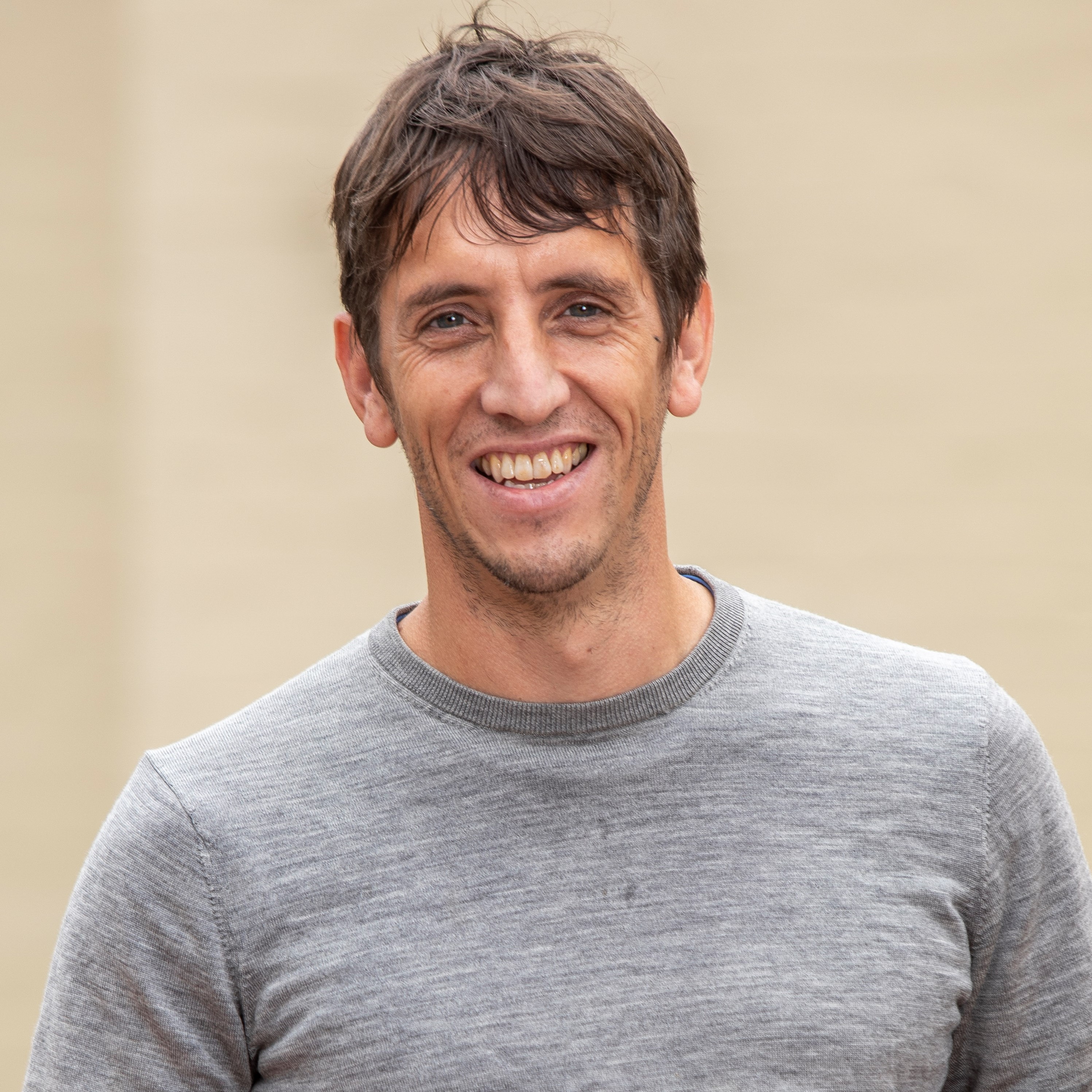
| About Dr Matthew Allen
Dr Matthew Allen is a Senior Lecturer in Historical Criminology at the University of New England. His diverse research is focused on understanding the unique and extraordinary transition of NSW from penal colony to responsible democracy, and the way that this process was shaped by the conflict between liberal ideals and authoritarian controls within the British world. His work on the history of alcohol, policing, summary justice and surveillance has been published in Australian Historical Studies, History Australia, the Journal of Religious History, and the ANZ Journal of Criminology, and he is currently writing a monograph for McGill-Queens University Press, entitled Drink and Democracy: Alcohol, Politics and Government in Colonial Australia, 1788-1856.
|

|
The second day of
The State of the Colony conference was held on Thursday 24 November 2022, following an earlier postponement upon the passing of Her Late Majesty Queen Elizabeth II.
Download the day's conference program here.
Conference recordings and presenter bios are coming soon.
About this session
When the Council was formed in 1823, what was the relationship between formal politics and the informal politics of everyday life? This panel explores lesser-known scandals and darker stories that were amplified by those who lay closer to the new constitutional politics, to become public struggles over reputation and power. In the rhetoric of the day, what was at stake was the moral fibre of the colony itself. Who protected the morals, and what ultimately happened to the powerless individuals whose stories were so effectively weaponised in the public domain?
Watch session, including audience Q&A:
Read:
Find the full transcript of 'Politics and People' from page 4 of the Hansard record here.
|
| About Professor Kirsten McKenzie
Kirsten McKenzie is Professor of History at The University of Sydney. Her sole-authored books include Scandal in the Colonies: Sydney and Cape Town, 1820 – 1850 (Melbourne University Publishing, 2004), A Swindler’s Progress: Nobles and Convicts in the Age of Liberty (UNSW Press and Harvard, 2009 and 2010) and Imperial Underworld: An Escaped Convict and the Transformation of the British Colonial Order (Cambridge, 2016). She is a Fellow of the Australian Academy of the Humanities and of the Royal Historical Society. Her current work on imperial commissions of inquiry is funded by the collaborative Australian Research Council project ‘Inquiring into Empire: Remaking the British world after 1815’, led by Professor Lisa Ford.
|
| About Penny Russell
Penny Russell, FAHA is a historian of gender, class, race and culture in 19th-century Australia, with a particular interest in families, intimacy and colonial encounters. Her recent books include Honourable Intentions? Violence and Virtue in Australian and Cape Colonies, c. 1750 to 1850 (Routledge, 2016), with Nigel Worden, and the award-winning Savage or Civilised? Manners in Colonial Australia (NewSouth, 2010). Penny is Professor Emerita at The University of Sydney, where from 1990 to 2021 she taught Australian and gender history. In 2022 she received a Lifetime Achievement Award from the Australian Historical Association.
|
About this session
Governor Lachlan Macquarie was given almost unlimited power over the colony of NSW. He tried to wield that power with justice and mercy. That he would sometimes fail was inevitable. As this session will explore, the fault lay less with him personally than with the differing priorities of the Parliament which appointed him and would finally judge him.
Watch session, including audience Q&A:
Read:
Find the full transcript of 'Executive Power' from page 17 of the Hansard record here.
|
| About Rev Dr John Harris
Rev Dr John Harris has spent much of his life involved with Aboriginal people as a child, a teacher, a linguist and an advocate. John has a particular interest in Aboriginal people and early colonial history. The author of numerous books and papers, John holds a PhD in Aboriginal languages, a ThD in theology, and a DD from the Archbishop of Canterbury and H.M. Queen Elizabeth.
|
About this session
With beautiful images to accompany her talk, in this session researcher and author Jessica North will tell the true stories of some remarkable women from early colonial NSW. They include the first woman who managed a large agricultural estate (and it wasn’t Elizabeth Macarthur); the subject of the very first civil law case in Australia; the instigator of the first prenuptial agreement; and the child of convicts who became a society queen, promoting Australia to the world.
Watch session, including audience Q&A:
Read:
Find the full transcript of 'Herstory' from page 38 of the Hansard record here.
|
Images in main banner, left to right:
-
'Natives of N.S. Wales as seen in the streets of Sydney' by Augustus Earle, 1830 / National Library of Australia
-
'The town of Sydney in New South Wales', by Major James Taylor, engraved by R. Havell & Sons (1821/4) / State Library of New South Wales
-
Text from the NSW Bill 1823
-
Portrait of Lachlan Macquarie by John Opie, c1805 / Mitchell Library, State Library of New South Wales
